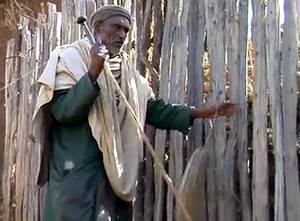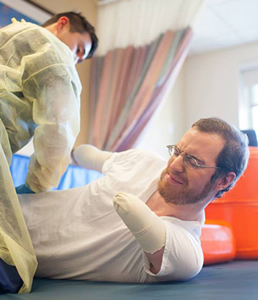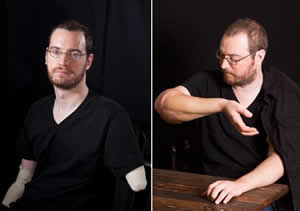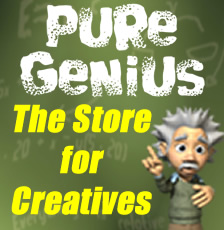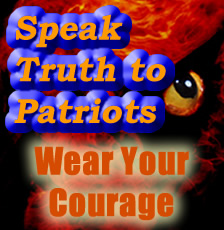Anthem FilmFest: Putting People Back Together
(Originally published on Blogcritics.org)
 At the Anthem Film Festival, part of the libertarianFreedomFest conference July 8-11, 2015, at Planet Hollywood in Las Vegas, I was discussing films with a young woman who commented, “I like documentaries, but so many of them are so depressing. I want to see positive stories.” She was in the right place. Vision: Healing the Blind in Ethiopia, winner of the Best Short Documentary Award, andStumped were two Anthem short documentaries that lifted the spirit.
At the Anthem Film Festival, part of the libertarianFreedomFest conference July 8-11, 2015, at Planet Hollywood in Las Vegas, I was discussing films with a young woman who commented, “I like documentaries, but so many of them are so depressing. I want to see positive stories.” She was in the right place. Vision: Healing the Blind in Ethiopia, winner of the Best Short Documentary Award, andStumped were two Anthem short documentaries that lifted the spirit.
Vision
What if you had been blind for years and a foreigner came to where you lived and said he thought he could heal you? What if he did? This was the experience documented by director Eric Perlman who documented the story of five Ethiopians, farmers and housewives, whose lives were transformed.
The transformation was facilitated by the Himalayan Cataract Project, which as the name implies began its work in Asia. There are about 18 million people worldwide totally blind or partially blind due to cataracts. The Project was able to develop a method of providing the surgery for about $20. It would cost about $4000 in the United States.
They not only gave people cataract surgery, they trained locals to conduct the surgery and helped establish clinics and an infrastructure to support them. They were so successful in Nepal, they looked for other areas needing help.
The stories of the people helped by the project in Ethiopia were heartwarming and joyous on two levels. The film showed the lives of the people before the surgery. It showed when bandages were removed and the patients could see, in one case for the first time in fifteen years. Their joy was indescribable and touching. But, then, director Perlman returned to the village 18 months later and followed up with the patients.
One patient, who when she was blind and helpless would pray for her own death, was caring for her grandchild whom she had never seen until the surgery. Another, who would avoid eating so he wouldn’t have to walk to the outhouse every day, was running a successful chicken egg business and had built a series of shops he was renting to other merchants.
The act of compassion performed by the Himalayan Cataract Project not only improved the lives of the people directly involved, but reverberated throughout the community.
During a Q&A after the screening Perlman was asked if there were any challenges when making the movie. “I had my cameras confiscated in customs because the cameras had ‘pro’ written on them and I was told I didn’t have the proper permit to bring them into the country.” He laughed. “Almost every camera nowadays says ‘pro’ on it, even GoPros.”
“I was bitten by a rabid dog and chased by camels,” Perlman recalled, “but the worst problem came from the World Health Organization.”
Perlman explained that he had a list of 1000 people as potential subjects of the film and then was told that because of WHO regulations, he wouldn’t be allowed to film any of them. “I had to start over finding new subjects, but, I just asked myself, ‘What would Howard Roark do’, and carried on.”
Vision: Healing the Blind in Ethiopia can be viewed on Vimeoand more information about the Himalayan Cataract Project can be found at their website.
Stumped
Stumped, in contrast to Vision, is not about worldwide projects or thousands of people, it is the story of a single filmmaker, Will Lautzenheiser,
Lautzenheiser was following his dream and moved west from Boston to Montana in 2011 to teach screenwriting at Montana State University. Shortly after he began his new job, a pain in his leg sent him to the hospital. The pain was the result of a group A strep bacterial infection. His organs began to shut down and his limbs began to rot. The doctors had to amputate both of his arms and legs to save his life.
His fight to adjust to his radically changed circumstances as a quadruple amputee and to learn to walk and adapt to the world using artificial limbs is impressive.
His spiritual strength is even more impressive. The film shows him doing a stand-up comedy routine (sitting in a wheelchair) about his plight. And, yes, he does joke about doing stand-up sitting down. Still, it was hard to laugh, given his plight.
Will Lautzenheiser before and after arm transplant.
In late 2014, Lautzenheiser risked his life, agreeing to be the subject of an experimental double arm transplant at Brigham & Women’s Hospital in Boston, only the second person to undergo this procedure. He has since been able to wiggle his fingers and feel the wind on his arms.
The film ends not with the “The End”, but with “Not the end…to be continued.”
Stumped, the ten-minute short film, is now being adapted into a feature-length film. The film is being funded through The Austin Film Society. You can donate and learn more about the film at itswebsite, Facebook page or on Twitter.

